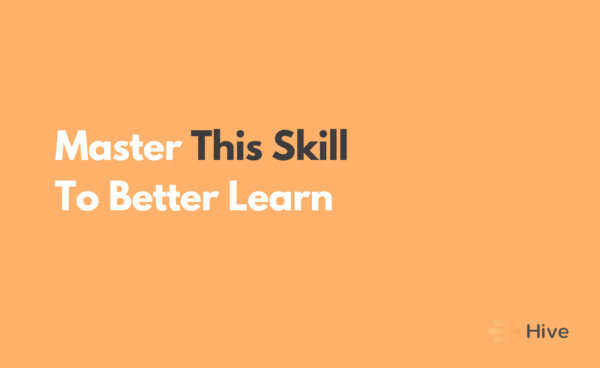Permanent learning begins at the bottom — you can only work your way up, especially if you want to keep more of what you learn.
The “tree principle of learning” is an easy way to understand how we learn. It recognizes that every learning experience begins with a single root thought, then converted into multiple branches as it spreads throughout our memory system. It’s not about the order in which you learn things but about the underlying structure of the information itself.
The tree principle of learning can be summarised as: “a tree with many branches and few roots grows taller than one with many roots and few branches.” It’s a metaphor for the way we learn. The right kind of learning or practice can lead to unexpected benefits later on, so it’s important to create a solid knowledge base before becoming an expert.
Gathering practical knowledge is not learning just anything and everything but understanding how the basic concepts work. You need a good foundation for good ideas to stick. As with any skill or topic we learn, it’s essential to understand the fundamentals before delving into the details.
Elon Musk explains: “It is important to view knowledge as sort of a semantic tree — make sure you understand the fundamental principles, ie the trunk and big branches, before you get into the leaves/details or there is nothing for them to hang on to.” No matter your level of learning new skills, if you skip the fundamentals, your knowledge may have no concrete basis.
In Physics, what goes up must come down, and it’s essential to know why but a basic understanding of motion will do you more good at the beginning than a complex dissertation on gravity.
If you learn something new right away without regard for the bottom-up principle, it will only make your learning appear shallow if you take shortcuts and skip foundational topics. Once you understand the first principles of any topic, you can quickly master the details.
As humans, we are naturally curious and eager to learn new things. But, this also makes us prone to being overwhelmed by the many ideas in the world.
To stay grounded and focused, you must develop a habit of limiting the amount of information you consume at any given time.
As you build your knowledge base, focus on learning fundamentals until you have a solid understanding of the subject. This allows you to shift your focus to other areas that require more attention.
Be more practical
“Nobody ever figures out what life is all about, and it doesn’t matter. Explore the world. Nearly everything is really interesting if you go into it deeply enough.” ― Richard P. Feynman
Root knowledge provides the underlying principles and logic for a particular set of skills or practices. If you think about it, the “root” part of any skill should be easier to master. It lays the solid foundation for stacking other ideas and concepts.
For example, if you want to become an accountant, learning how taxes work as opposed to learning complex accounting theories will have a much faster impact. Unless you aspire to become an accountant professor instead of just a regular accountant, you probably won’t ever need those more advanced accounting theories in your day-to-day job.
Before you can master a topic, craft or skill, you must first understand its fundamentals. In the case of learning how to code, it’s important to understand the basics of coding before diving into more complex concepts like object-oriented programming and other branches of programming.
These foundational principles aren’t difficult to grasp, but they’re often overlooked because most online coding courses skip straight to the branches. But understanding the roots is key if you want to become a successful coder in the long run. Coding bootcamps can help you to learn not only basic concepts but also complex ones to succeed in your career.
In any career path, it is the small things that make the most significant difference. These small details can either make or break our performance and career growth in the long run.
With so much information at our disposal, it’s easy to get distracted by big and attractive topics/ things/concepts. It is exactly these distractions that are keeping us from mastering the essential details of any topic. The little details are what separate good professionals from great ones.
Knowledge is a collection of facts, concepts and rules that can be understood and applied when necessary. The goal is to build up an entire semantic tree of knowledge so that you can accurately apply it in your profession or life.
Here’s how: start with your learning goals: what do you want to achieve? Break down your topic/subject into the basics, essentials, important and complex. Get good at the basics — dig deeper and solidify your root.
Learning and retaining knowledge is a lifelong pursuit. Better learning creates new neural pathways in your brain that allow you to easily encode and absorb new or more ideas. To successfully learn and retain more, master the roots.
This article originally appeared in Medium.





